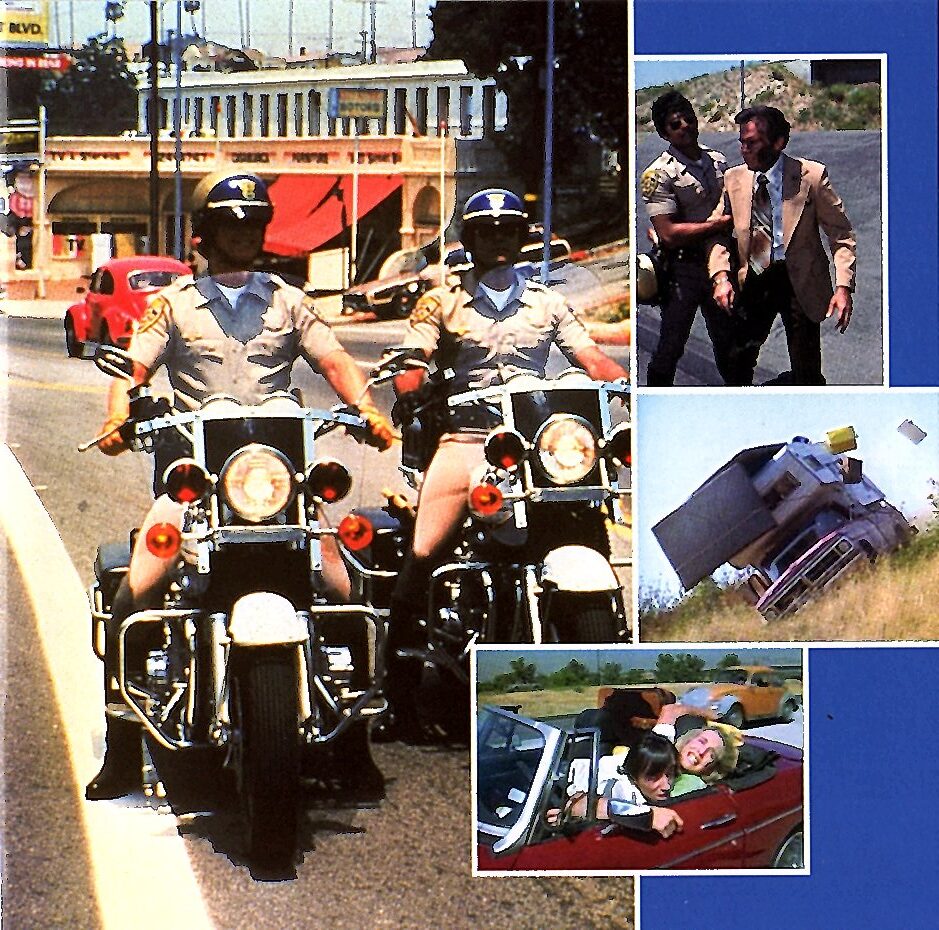
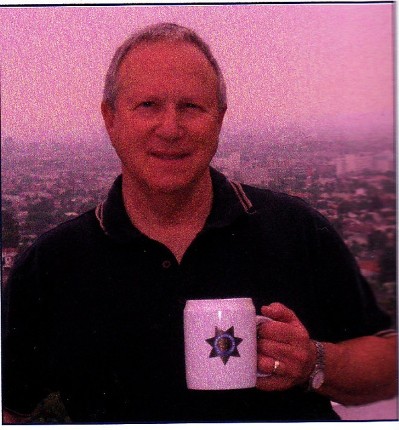
| Producer Paul Rabwin joined CHiPS in its second season and played an instrumental role in the phenomenal success of the show. At the time, CHiPS served to increase public awareness and understanding of the daily challenges of police work. Paul spent five years with the series, serving as co-producer and producer on 116 episodes.CHiPS, created by Rick Rosner, followed the day-to-day adventures of two California Highway Patrol motorcycle officers, Frank “Ponch” Poncherello, played by Erik Estrada, and Jon Baker, played by Larry Wilcox. The show premiered in 1977 and had a healthy run until 1983, reappearing briefly for a 1988 TV-movie with a slightly paunchier Ponch and a slightly seasoned Jon. The series is set, once again, to see the light of day in a featured film scheduled for release in 2009.Paul was originally brought to the series by executive producer, Cy Chermak, who recruited him as a co-producer for the show’s sophomore season. By the sixth season, however, Paul said there were significant changes happening. Larry Wilcox had decided to leave the show, there were going in a different direction. According to Paul, without Wilcox, something would be missing.“The chemistry between Larry Wilcox and Erik (Estrada) was instrumental to the show. That was the year they changed things around, made casting changes, brought in motorcycle champions and all that.” Wilcox and Paul left the show at the end of the fifth season.Paul started in the entertainment business in 1970, with Quinn Martin Productions. He worked on shows such as Cannon and Barnaby Jones, and most of the company’s other series. By the time he got to CHiPS he was a seasoned professional, and brought his own unique voice to the production.“I loved CHiPS. What I really liked about the scripts I was reading was that the concept ofcamaraderie was very important. It was the idea of law enforcement being helpful and responsible without being violent. I was coming off of detective shows and Hill Street Blues was coming on at the time. To me they were all a little violent. I don’t recall CHiPS ever pulling guns. We didn’t want to make that the focal point. It was about two cops who worked really, really well together. Each had different skills, and they complimented each other. And they wanted to be a part of the community they served. I thought that was very responsible television, and I respected that.”Paul noted that the audience loved the characters, seeing them in action, seeing their personal lives, and the demographic skewed accordingly. “We had as a chief advisor, Dave McDannel, who was an active member of the highway patrol. All of the stories had his input and he gave the producers many, many ideas; things that we would never think of that were based on reality. He supervised the operations of the set and we always made a point of staying within the basic guidelines of the highway patrol. He was the watchdog, advisor, and the voice of the CHP on CHiPs. It was accuracy in the middle of an entertainment program. We were commended many times from CHP and law enforcement because the show actually helped improve their recruitment efforts. We felt we were doing our part. It wasn’t really the purpose of (the show) but it was nice offshoot.”Paul continued, “What was great about CHiPs was that it told some very interesting stories on a personal level, and it intersected with the idea of a crime drama.”“One of my favorite episodes was inspired by a friend of mine whose parents were deaf. She was telling me about the time her father was driving and he wasn’t paying attention, and the cops weretrying to pull him over. He couldn’t hear the sirens. When he realized they were signaling him he finally pulled over. Things got more complicated because it was a sunny day and, as the officer tried to tell him to get out of the car, the sun made it so he couldn’t see the officer. He couldn’t speak because he was deaf and the officer thought he was drunk. The officer ended up pulling him from the car. From this story we got a wonderful script about being deaf and driving. We gave it a twist, though, by making the deaf driver very obnoxious and indignant and wanting to sue everybody. We didn’t make the deaf protagonist particularly sympathetic, showing that officers deal with different situations like this every day. It made for a very interesting story in itself, but what pulled it together was that at the end of the episode Jon and Ponch are separated and need to communicate by means other then speech. They end up doing so by using techniques they learned in the deaf world.“We demonstrated how officers can learn something new every day; and apply that to their profession. Ponch and Jon learned how to use body language, sign language, and non-verbal communication.”Paul says that when he started on CHiPs it was on-the-job training. While he got a lot of information from research, he learned mostly by talking with Highway Patrol Organizations.“It was easy for Rick (Rosner) because he came from that world. In my case I joined from the entertainment side. I absolutely have very high regard for law enforcement, and I learned a lot from working on the series. I served in the Marine Corps. I remember that in the late 60s to early 70s law enforcement officers weren’t very popular. As civilians we think that we’re just normal guys and we pose no threat. But the reality is, when you wear that uniform and badge, every stop you make, no matter how innocuous, is a potential disaster in waiting.”CHiPs served a very unique demographic at the time. Paul explains that the audience skewed younger, because of the attraction of Erik (Estrada), and it was a welcome surprise that females were tuning in. The show’s target was the young male audience, who enjoyed watching female guest stars, like Heather Thomas, Heather Locklear and Michelle Pfeiffer, as well as the motorcycle car chases and all the excitement.“We knew we’d attract the teenagers and the kids who didn’t yet drive. For Saturday night show to be in the top 10 was quite an accomplishment. There was a large audience who didn’t go out on Saturday nights because they wanted to stay home and watch CHiPs. “Paul explained that they would often feature stunt shows that drew in the younger crowd, but also sometimes brought in some old favorites, like guest star Rudy Vallee, to draw in the mature crowd.“We did unusual things. No one would ever really think of CHiPs as a groundbreaking series, but we did things that were different at the time. We’d do some creative shots, where they’d come toward us on bikes and shoot past. We put in this huge roar as they went by, then sound effects would fade away and lead to music. It was very different. People loved it. “Paul also says that these types of creative elements also gave a different sense of excitement to the car chases and the crashes.“The cars would go in slow motion and we’d drop all sound. Silence – unit the impact of the crash – all those little tricks cinematically created a piece of television art.”Later in the show producers hired composer Alan Silvestri, who is now one of the most important composers in the entertainment industry. Silvestri updated the theme music, brought in the disco elements, and increased the pace. Silvestri went on to compose for dozens of feature films including, Forrest Gump, Stuart Little, What Women Want and Night at the Museum, to name just a few.“CHiPs was one of Alan’s earliest projects. He took our original theme and rearranged it, gave it that synthesizer and upbeat disco feel, and infused a real sense of contemporaneousness in the series. He brought the music into its time and attracted a good audience. I never underestimate his contribution to the show.”In closing, Paul admits that the show was a mixed bag. “We knew CHiPs was, in many ways, a bit of fluff – pretty girls, pretty guys, car chases, so we would inflict quality in any place that we could. It was not a poorly made series. It was cinematic. It was quality television and it was not to be underestimated for its role in Hollywood, and in society.”Paul has continued to make his mark on Hollywood with numerous landmark television shows including The X-Files, Wonderfalls and most recently, October Road, for ABC. |


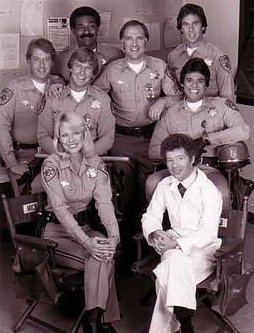
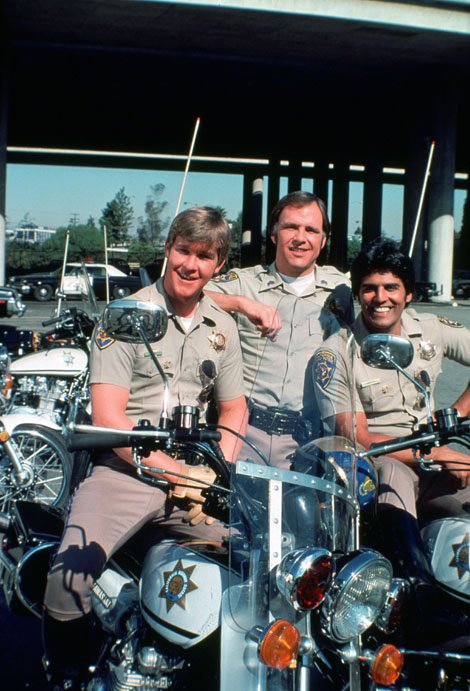
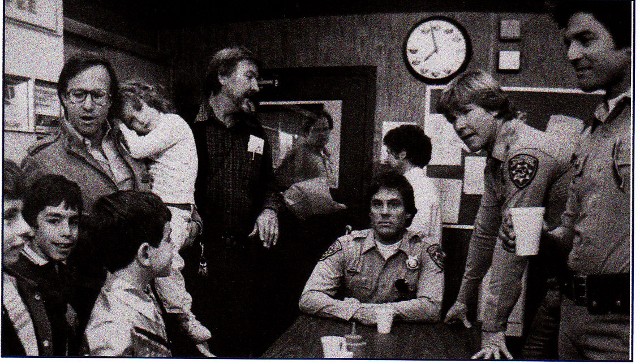
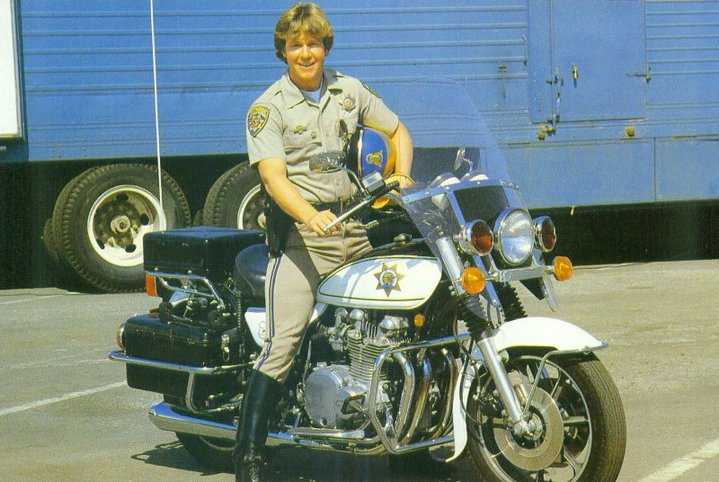
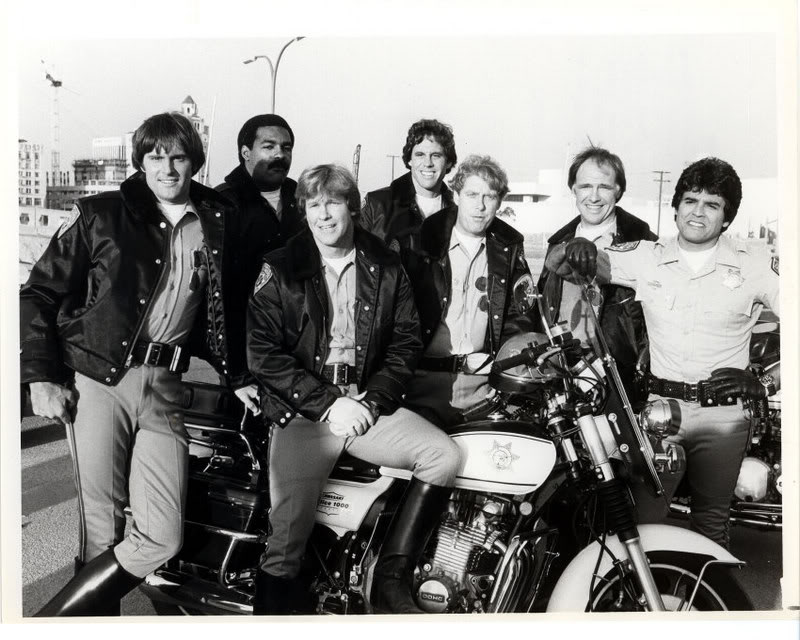
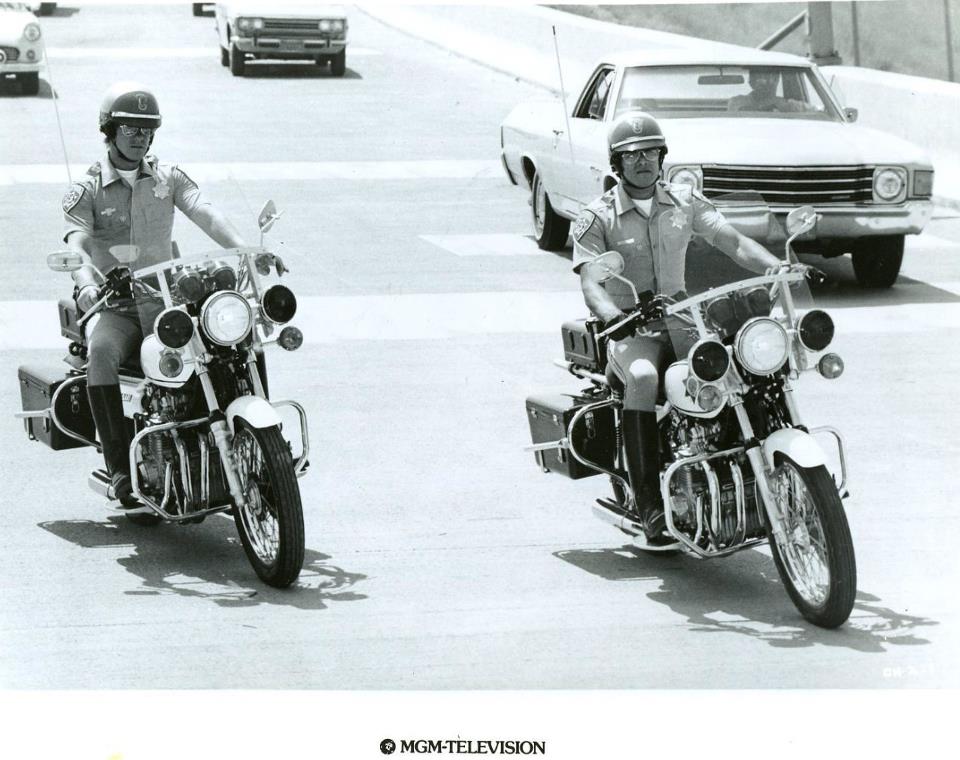
This article was provided by The Municipal Motorcycle Officers of California. This article was in “The Siren” 78th Annual Official Year Book. The Siren is a publication of the MMOC. This article was reproduced with the permission of the MMOC.